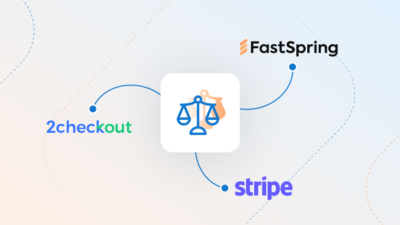Today, many businesses have moved from physical to digital products and services to leverage the benefits of ecommerce. However, the risk of a costly data breach is always present. So there is a growing need for companies to ensure the security of payment cards, customer IDs, and user account information stored in their systems.
Trust is the most valuable part of a customer relationship—especially when it comes to customers sharing their payment information online. Once you make a mistake, it is extremely hard to build that trust back with your customers.
Luckily, there is strict regulation for payment processing like the PCI DSS that protect both customers and businesses. All companies involved in the processing of payments need to comply with the Payment Card Industry Data Security Standard (PCI DSS) to safeguard cardholder data.
What is PCI DSS Compliance?
PCI DSS was jointly established back in 2004 by leading credit card entities. It entails a broadly accepted set of procedures and policies meant to optimize the security of credit and debit card transactions. It also protects cardholders against wrongful use of their personal data. Any service provider or merchant that is involved in processing, transmitting or storing cardholder data needs to be PCI DSS compliant.
The standard stipulates 12 requirements, grouped into six control objectives. These control objectives are meant to protect cardholder data using a set of specific information security techniques.
If you don’t comply with the PCI DSS requirements, you could lose your card processing privileges or even be fined.
Why is PCI DSS Compliance Important?
1. It Gives Customers Peace of Mind
PCI DSS compliance helps reduce the risk of data breaches. This minimizes your worries and, in turn, allows you to concentrate on your day-to-day business operations. Customers also enjoy this peace of mind, as they can entrust you to keep their data safe.
2. It Minimizes the Risk of Breaches
Implementing PCI DSS ensures that all the channels that your business uses to engage with customers are safe. It involves assessing your website and regularly updating it to get rid of all weaknesses that risk exposing your cardholder data.
3. It Delivers a Security Standard
PCI DSS provides businesses with a security requirements baseline that allows you to know where to start when creating your security program and what to do in case of a potential security breach. It also provides a guideline to help you understand how to handle your customer data.
4. It Saves You Money
Reducing your risk of a data breach may save you a lot of money. Data breaches can come with heavy fines. You may also have to pay for replacement credit cards, compensation for your customers’ losses, audit fees, and investigation costs. All of these costs can be quite overwhelming, even for large businesses.
How can Third Parties Help Companies Achieve PCI DSS Compliance?
Third party service providers include all entities that process, store or convey cardholder data. Although outsourcing these services is an efficient way of achieving PCI DSS compliance, it is still your company’s responsibility to ensure that such providers handle your customer’s card data per the PCI DSS standards.
Third-party service providers can only help you achieve PCI DSS compliance if they comply with PCI DSS when they’re working with your customers’ data. They can be a major help in maintaining PCI DSS compliance easily, but you should do your due diligence to make sure that any third-party service provider you consider working with is trustworthy and reliable. You can learn more at ReciprocityLabs.com.









